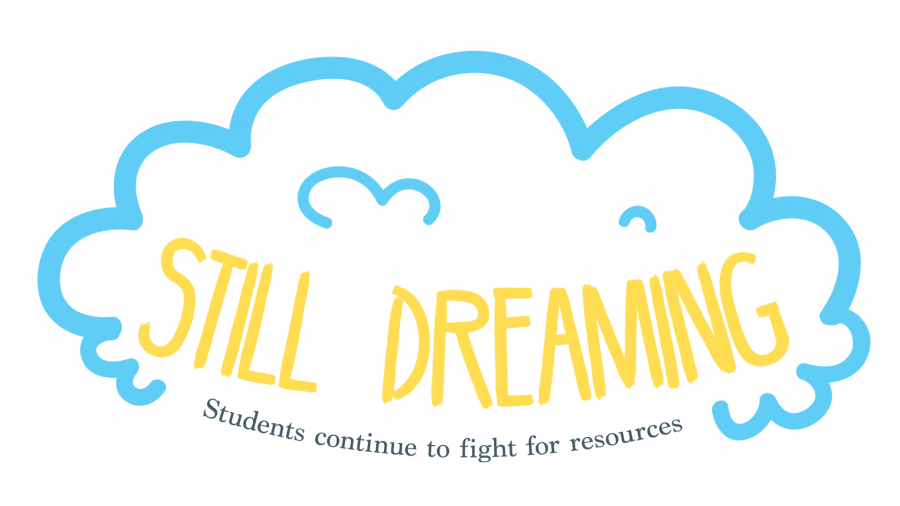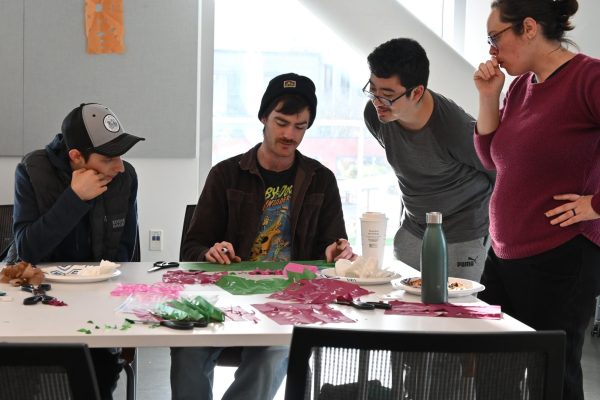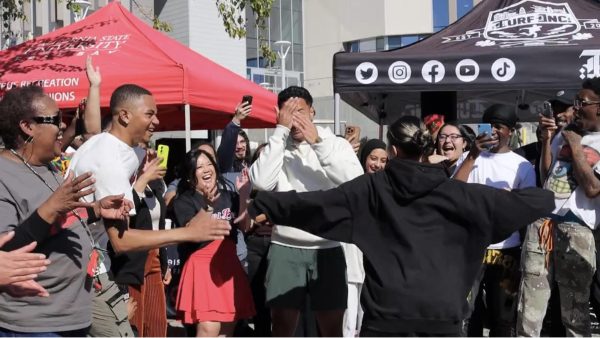Undocumented students need resources
Fifteen years ago, on Oct. 12, 2001 Governor Gray Davis passed Assembly Bill 540 which allows undocumented students to pay in-state tuition. As a result, an undocumented student is known as an AB540 student or a “DREAMer,” in reference to the Development, Relief, and Education for Alien Minors Act which Congress passed in 2012. The Dream Act allows DREAMers — undocumented students — to apply for state financial aid and attend colleges and universities.
California State University, East Bay faculty members Melissa Cervantes, Carolina Hernandez and Gerardo Ureno have begun to develop a resource center that aims to provide undocumented students with academic support, life planning, legal advice and educational counseling that they currently don’t receive.
Assistance and guidance are important when filing documents such as Deferred Action for Childhood Arrivals, or DACA, an immigration policy passed for students who have been in the United States prior to their sixteenth birthday or before the year of 2007, and must be renewed every two years.
Many undocumented immigrants eligible to receive DREAM Act benefits don’t apply because of a lack of resources. According to a 2013 survey conducted by the National UnDACAmented Research Project, 10 percent said that they didn’t know how to apply, 22 percent reported missing paperwork and 43 percent could not afford the $465 application fee.
Although they apply for state aid, undocumented students do not always qualify or they disqualify if their income is above $25,000 per year. They work multiple jobs just to survive and when they make a high income, they lose the opportunity to receive state aid. The state aid undocumented students receive typically covers only tuition: they often pay for textbooks and housing out of pocket. When disqualified for state aid, they then have to pay out-of-state tuition.
Undocumented students need help staying up to date with current immigration legislation. CSUEB student Luigi Madrid often feels the need to hide behind her immigration status but also seeks extra support that is accessible within our college campus. Madrid said that having a resource center on campus “definitely would’ve been useful” to him earlier in his life when he first found out he was undocumented.
The new resource center on campus could assist students with the DREAM Act application process, which can be difficult to navigate. Legal advising would be one of the most important things offered at a resource center on campus, according to Beatriz Orozco, a former lecturer at Cal State East Bay, who was undocumented during her time as a student on campus.
“There should be that sort of assistance. There should be that sort of help because a lot of students don’t know,” Orozco said. “They don’t know where to go for this guidance, they don’t know who to ask, and I feel like it’s important.”
Local high schools in Hayward offer legal advice and DREAM Act application assistance to undocumented students, but due to confidentiality, school staff cannot ask students if they are undocumented: it is up to students to inform staff if they need help.
Guadalupe Santuyo, a counselor at Hayward High School, coordinates workshops for DREAMers and faculty on campus and assists DREAMers in finding resource centers on college campuses. Since there is no point of contact at CSUEB for AB540 students, Santuyo can only direct them to the CSUEB website, which gives general information for AB540 students. In contrast, UC Berkeley’s DREAM Center offers academic counseling, mental health support, financial aid and legal services to their undocumented students.
East Bay hosted its first “DREAMer Day” on Feb. 23. One of the activities was an UndocuAlly training, which provided information on the DREAM Act, Advance Parole, DACA and new California laws passed for undocumented students, faculty members and others who are concerned for the undocumented community on campus.
Gerardo Ureno, one of the presenters at the training, said that the coordinators of UndocuAlly are trying to have these sessions every quarter in order to build a “task force” of “UndocuAllies.”
On Cal State East Bay’s campus, “there is a need for students to be able to know about resources outside of the realm of what they have been looking at,” Orozco said.








